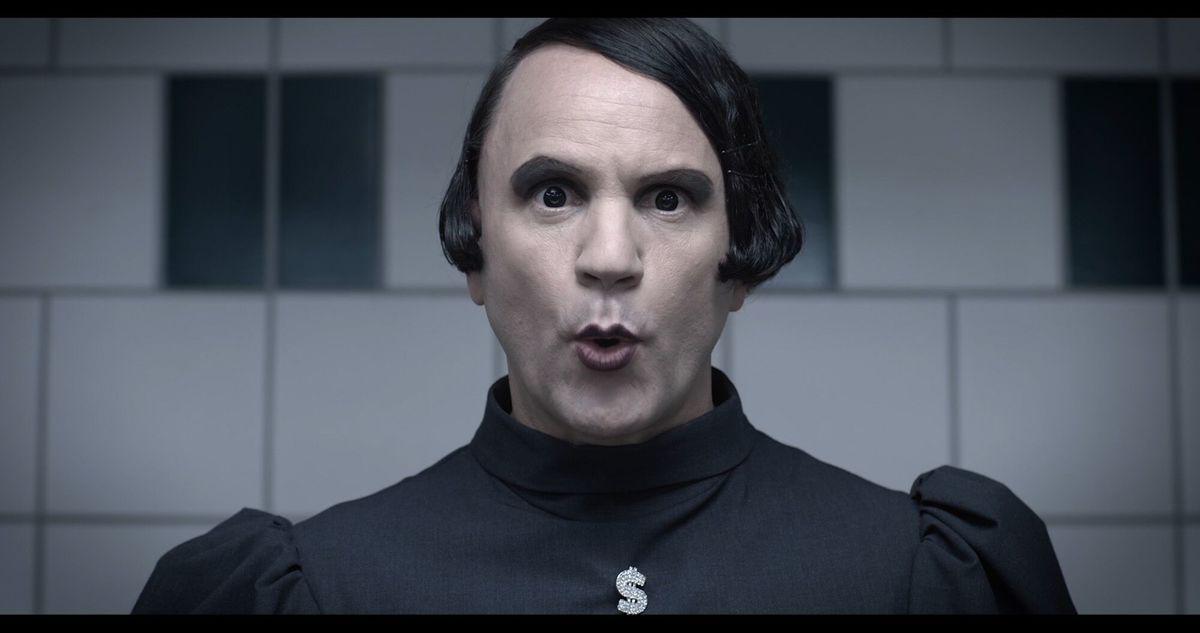In person || Spotlight: Bjørn Melhus
The works of German video and installation artist Bjørn Melhus have received international recognition since the early 1990s, both at film festivals and in exhibition contexts. Melhus, born in 1966, was part of the first generation to grow up with the mass medium of television. He says of himself that American films and series (such as Flipper, Fury, and Lassie) in particular influenced him and confronted him with virtual identification figures. The reflection of one's own self in media-mediated stereotypes and the playful examination of genres, TV formats and popular culture of all kinds are the central features of his art. From a sample of dialogue fragments, music and sounds from existing sources, he designs his soundtracks, which dictate the narration. All the characters: men, women, children and animals are embodied by Melhus himself, he slips into the voices. In doing so, he does not see himself as an actor at all, but tries to portray different parts of himself in the stylized protagonists. But his theme is not only the criticism of the media world of surfaces and its influence on emotions and desires, but also the criticism of capitalism and other promises of salvation. (Brigitta Burger-Utzer)
Program 1 Thursday May 30, 2019. 21.00 The Magic Glass (1991, 6 min) Out of the Blue (1998, 6:30 min) Far Far Away (1995, 16mm on video, 39 min) Murphy (2008, 4 min) Afterlife (2010, 7 min) I'm not the enemy (2011, 13:30 min).
In The Magic Glass, Bjørn Melhus mirrors himself in the television screen with a female version of himself, failing to have a real encounter. Afterwards, a faceless person narrates what she was influenced and driven by for her videos. One of the most important U.S. cinema fairy tales - The Wizard of Oz - is deconstructed in Far Far Away: its Dorothy never reaches the land beyond the rainbow, but remains stuck in the loop of projection. Also in Afterlife, we hear Judy Garland's voice, singing a hymn on the occasion of John F. Kennedy's assassination. Last, returning soldiers find an inhospitable Germany, tragicomically Melhus stages a parallel version to Vietnam veterans. (bbu)
Program 2 Saturday June 1, 2019. 19.00
Jetzt (1993, 5 min) America Sells (1990, 7 min) Freedom & Independence (2014, 15 min) Sudden Destruction (2012, 4:20 min) Auto Center Drive (2003, 28 min) No Sunshine (1997, 6 min) The Oral Thing (2001, 8 min).
Now is an almost abstract collage of footage of the day Germany was reunited. Quotes of evangelical content from US cinema films meet sayings of the self-proclaimed objectivist philosopher Ayn Rand, the nightmare of Freedom & Independence is set against the backdrop of a megalomaniac big city. Melhu's method of having an alter ego enter into dialogue with other figures from the media pattern catalog finds particularly complex variants in Auto Center Drive and No Sunshine. In the former, he encounters the heroes of his youth: Jim Morrison, Janis Joplin, and James Dean; in the latter, he encounters child stars who fail to develop their own identities and grow up. (bbu)
The event takes place in cooperation with the short film festival VIS Vienna Shorts and the Austrian Film Museum. Österreichisches Filmmuseum Augustinerstraße 1 1010 Vienna Ticket reservations: 533 70 54 or online: www.filmmuseum.at
Die Veranstaltung findet in Kooperation mit dem Kurzfilmfestival VIS Vienna Shorts und dem Österreichischen Filmmuseum statt. -> Österreichisches Filmmuseum Augustinerstraße 1 1010 Wien Kartenreservierungen: 533 70 54 oder online: www.filmmuseum.at

